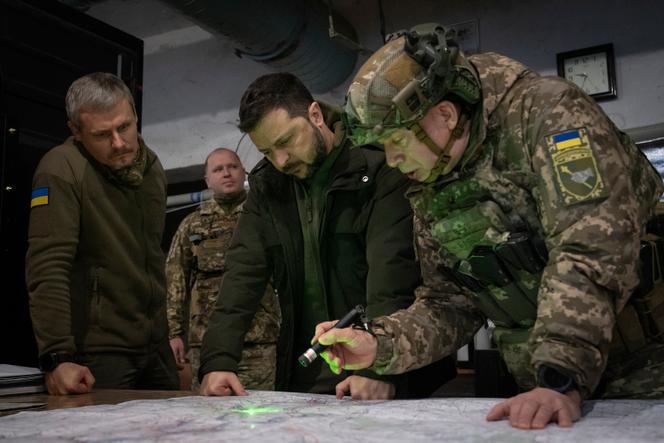


Appointed by President Volodymyr Zelensky on Thursday, February 8, to be the chief of the General Staff of the Ukrainian Armed Forces, General Oleksandr Syrskyi is first and foremost a soldier. He is someone who has kept his distance from politics and hardly used his military achievements to make himself publicly known. Assuming top posts, his career has not stopped him from staying close to the front lines and fighting, even at the age of 58 and despite his national responsibilities within the General Staff. Zelensky has hailed him as "Ukraine's most experienced general."
Born in Russia and having begun his military studies in Moscow, Syrskyi chose Ukraine, where he was based at the time, immediately after the end of the Soviet Union and the country's independence in 1991. Promoted to general in 2009, he was involved in cooperation with NATO and reforms of the Ukrainian army as early as 2013, before the pro-European Maidan revolution. When Russia annexed Crimea and ignited the Donbas conflict in 2014, he was on the front line against pro-Russian separatists as head of "anti-terrorist operations." The general then commanded the armed forces on the entire eastern front until his appointment as head of the army in 2019.
Since Russia's invasion on February 24, 2022, General Syrskyi has played a key role in the defense of Kyiv, preventing the Russian army from conquering the Ukrainian capital. Then, as the war progressed, he moved his forward command, first to Kharkiv in the north, where he commanded the daring counteroffensive that reconquered the region as far as Izyum, and then to near Dnipro in the east, where he had the thankless role of trying to contain Russian assaults in the Donbas. He is considered an ascetic, a hard worker and an outstanding planner.
The defense of Kyiv remains his undisputed military feat. Syrskyi told Le Monde a year ago that it was his chief – General Valerii Zaluzhnyi, whom he has just succeeded as head of the General Staff – who pulled him out of bed on February 24, 2022, to tell him that Ukraine was being invaded by Moscow's army.
The two generals then made two choices. Firstly, they chose to hold certain lines at all costs – as at Irpin – and confront the enemy head-on to prevent them from penetrating Kyiv and turning the conflict into urban guerrilla warfare on the Ukrainian side. Second, they let the enemy advance along the northern roads, even if this meant losing territory, to stretch Russian lines so far that armored columns could be ambushed and would lack logistical support.
You have 55% of this article left to read. The rest is for subscribers only.
